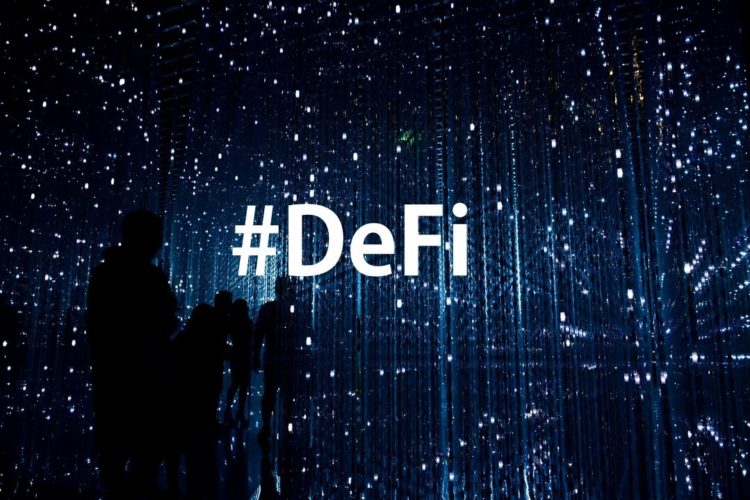Derivatives are by far the most popular financial instrument in the world. The total value of derivatives in TradFi is estimated to be worth over $1 quadrillion compared to just $130 trillion for bonds and $70 trillion for stocks. According to some experts, the global derivatives market could be more than 10x the size of the worldwide GDP.
As the decentralized financial system continues to grow, derivatives have gained enormous traction in DeFi. Let’s dive into what derivatives are and how they are flourishing in DeFi.
What are derivatives?
In simple terms, derivatives are contracts that derive their value from another asset or index such as stocks, gold, real estate, stablecoins, cryptocurrencies, and much more.
Derivatives can be traded on an exchange or over the counter. Most of the derivatives in TradFi are traded over the counter. Traders are optimistic about decentralized derivatives because anyone can create contracts in an transparent and permissionless way, according to SynFutures Academy, an educational initiative by the decentralized derivatives platform SynFutures.
Since the value of derivatives comes from the performance of the underlying asset, traders buy and sell them to speculate on the price, hedge the risk exposure, or to use leverage. The leverage amplifies the wins, but it also comes with the risk of higher losses. What’s more, derivatives give traders access to otherwise unavailable markets or assets.
There are four most common types of derivative contracts:
1. Futures
Futures are financial contracts between two parties for the purchase and delivery of an asset at a predetermined price on a future date. Both parties have an obligation to carry out the contract as agreed. Traders typically use futures to offset their risks or to speculate on the price movement of an underlying asset.
2. Options
Just like futures, options are a derivative contract to buy or sell an asset at a predetermined price on a future date. But there’s a difference. With options, buyers have the right but not the obligation to buy the asset. You pay a fee called premium to avail the right, and when the time comes, you have the freedom to choose whether to exercise the right or let the contract expire.
3. Forwards
Forwards are traded only over-the-counter, which means they inherently carry a greater degree of counterparty risk. They are just like futures, meaning two parties enter a contract to buy or sell an asset at a specified price on a future date. The buyer has the obligation, not just the right, to carry out the contract as agreed. Forwards are different in that the parties involved can customize almost all aspects of the contract including the terms, size, and the settlement process.
4. Swaps
Swaps are also traded over-the-counter and are customized to the requirements of the buyers and sellers. They are derivative contracts between two parties to exchange financial instruments or cash flows.
Trends in DeFi derivatives
The DeFi derivatives are still in the early stages, but hold immense potential. In decentralized finance, all the derivative contracts are represented by synthetic assets aka synths. What makes synthetic assets interesting is that they give you exposure to blockchain as well as real-world assets without leaving the DeFi ecosystem.
Unlike derivatives in TradFi, synths can be minted by anyone. You can send and receive synths through crypto wallets and switch them easily to other assets, unrestricted. For instance, the user-generated markets on SynFutures allow anyone to list any trading pair in under 30 seconds.
Another major development in the DeFi space is the Perpetual Futures or “perps.” They have become popular among day traders. Perps don’t have an expiry date, meaning users can keep the positions for as long as they want. But you’ll be charged fees called the funding rate for holding your position. On SynFutures, perpetual futures are hard pegged to spot and offer rigid risk management to protect users’ positions and avoid excessive price volatility.
More importantly, decentralized derivative trading platforms like SynFutures are governed by the community. The community has a say in everything from chain deployment to asset listings. While it transitions to a full Decentralized Autonomous Organization (DAO), SynFutures has formed a pre-DAO committee called the FutureX. Members of FutureX interact with the community via monthly online meetups, discuss trends, share ideas, and collectively decide on all SynFutures actions.
Conclusion
According to a report by IOSG Ventures, decentralized exchanges will eventually trade everything. Both value and trader activity has started moving from traditional derivatives exchanges to decentralized platforms. The permissionless character of the decentralized exchanges will lead to more innovative and unique derivatives markets. Given the pace of innovation in DeFi, it would be interesting to see how big the decentralized derivatives market can become.
Credit: Source link












































































































































